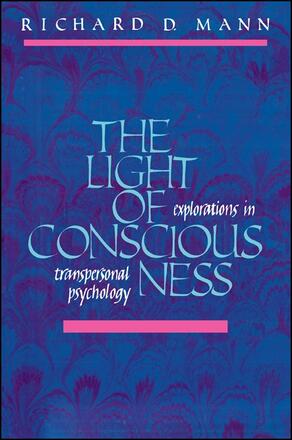
The Light of Consciousness
Explorations in Transpersonal Psychology
Alternative formats available from:
Reviews
"I regard this book as a highly important synthesis of psychology, cosmology, mystical experience, and religious thought. The author combines the experiential and the theoretical with great skill. There is not a false note in the book. There were plenty of issues where an author of lesser authority could have fallen on his face. Mann never does. I also like the fact that a person of Mann's obvious gifts has undertaken a study of the mystical experience of one of the most important religious figures of the twentieth century, Swami Muktananda." — Richard L. Rubenstein, Florida State University
"This is a truly remarkable work; nothing like it exists, it is absolutely unique. We have a seasoned, rigorous psychologist examining with great openness, sensitivity, and profundity, the experiences, teachings, and nature of a famous spiritual teacher; and even more, the whole nature of transcendental experience and spiritual discovery. His final goal — to bring the transpersonal into psychology in a responsible way — is a fresh and powerful achievement. There is nothing "flakey" about the book (the world is full of flakey stuff: off-beat psychologists playing around with mysticism in impersonal and ignorant ways); it is challenging but sound. The book is serious in the best sense of the word, deriving, I think, from the author's sense of responsibility to himself, his profession, and to the readers." — James N. Mosel, The George Washington University
"I find compelling the idea that certain phenomena are not taken seriously in psychology, not because the evidence for them is weak, but because the available theoretical paradigm cannot accommodate them. In upholding the spiritual as a central factor in human experience I believe that the author has located in this issue the most strategic point of attack. Finally, I like the honesty of the book. Books which are both intelligent and honest are rare." — John A. Faber, Case Western Reserve University
"I feel that the book is probably unique, in its combination of great psychological sophistication, in its autobiographical concreteness and sincerity, and in the depth of its epistomological and metaphysical search — it shrinks from none of the difficult problems." — Robert F. Bales, Harvard University